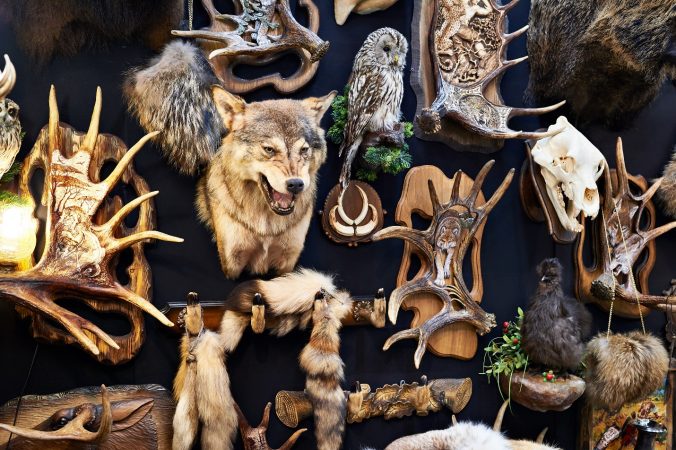You have no items in your cart. Want to get some nice things?
Go shopping
An hour and a half in, and so far, Monday night pints with his brother were going better than Tony Phelan had expected. It was Ian who had reached out, messaging on WhatsApp the previous Friday, asking how Tony was and whether he was free for a quick drink next week. Tony didn’t see the message for a couple of hours, but responded immediately when he saw it, writing that he was coping okay, and that he could do Monday. They agreed to meet in Rody Bolands, Rathmines, at 8pm.
Tony arrived early and ordered a pint of Heineken from a barman with a bald head and a slightly forced thickness of Dublin accent. While pouring the pint the barman asked Tony if it was still as mild outside as it had been that afternoon, to which Tony, feeling very much the newcomer to the dark and sparsely populated pub, only nodded, as though sure that what few ears there were around him were perked to attention. The barman then stated that he wasn’t one for this kind of heat, that he much preferred a bit of bite in the air, and Tony said that he was the same, before taking his pint to a booth on the far side of the pub. Now seated, and no longer the point of interest, Tony took in fully his surroundings. From the screen above the bar, and through the pub’s speakers, was reverberating the voice of Gary Neville, conducting his pre-match chatter ahead of the West Ham v Arsenal game on Sky Sports Monday Night Football. From the young couple cuddled up together in the corner there arrived the occasional titter, while from the kitchen there came a persistent sizzle. A smell of fish was coming from either the plate of the man seated nearest Tony, or from the man himself. The scene, though just about moving, was as static as movement can be. Not quite on pause but certainly slowed significantly. The pub was as low-lit as you might expect, and as empty as Monday nights tended to be, and seemed to Tony exactly the kind of place where two brothers in circumstances such as theirs, coming together for a rare one-to-one, might gather. What Ian’s expectations for the evening were, what he thought might be achieved by their meeting, Tony wasn’t sure. What he was quite sure of was that those expectations, no matter how modest, would be disappointed. That he didn’t have to offer what Ian might be anticipating did cause in Tony a nervousness, but it was a small one. An anxiety noted more than felt, half-felt at most, and felt perhaps more for Ian’s sake than his own.
At five minutes to the hour Tony received a message from Ian, stating that he was sorry, that he was running a few minutes late. It was then that Tony’s thoughts settled on Claire, Ian’s wife, whose utterly simple and childish devotion to her husband had always stirred in Tony a small frustration. For years he had observed her, wondered at her seemingly total obliviousness to subtext. She was an attractive woman, petite and blonde, against whom time had yet to commit any great evils, and whose great obtuseness Tony had always wanted to penetrate, even just the once, to confirm that there was beneath the surface some knowing creature, privy to the silent language behind things. He had always failed, in this regard, and had often come away from family gatherings with the conclusion that, as well as being incurably dull, she was also a bit dumb. Tonight, waiting for his brother, it was the image of Claire, rising onto her tippytoes and placing a small hand on Ian’s cheek, a kiss on his lips, that Tony had a hard time shaking. He couldn’t understand why, but his thoughts lodged themselves firmly there, fixed upon the tone of Claire’s voice, how seriously and earnestly she would tell Ian what a wonderful brother he was, sacrificing time with her and the kids and heading out to meet with Tony in his time of need.
He had seen Ian a couple of times in the two months since the funeral. They probably saw each other twice a month on average, usually at their parents’ home in Rathfarnham, and rarely just the two of them. As he waited, Tony wondered why this was so, what had stopped them meeting just a few of the nights during a twenty-year period during which a relative calm – now broken – had reigned over things. He knew that he was being dramatic, indulging the romantic regret of these missed opportunities, and he knew too that there were probably some occasions across this period when they did meet, and that he was just having a hard time recalling any. It dawned on Tony then that were it not for this evening’s context, looming enormous and clumsily over their meeting, he might have actually been looking forward to it. Or perhaps he was looking forward to seeing Ian, even in spite of everything else.
Earlier in the day it had occurred to Tony that for their meeting to have stood any real chance of success, the roles would have had to have been reversed – it would have had to have been Ian who had lost a child. The way it had happened in reality was simply the wrong way round, a violation of the natural order of things between them. Not only could Tony not imagine his younger brother as being the comforting, solid shoulder on which he should rely, but he could just as emphatically not picture himself as the person whose pain Ian would be trying to remedy. Perhaps this was a hangover from the roles assumed by them in childhood. A five-year age gap that never really closed. Tony the stoic, more serious and reserved older brother, and Ian, the joker, the charmer, the lovable little devil. Tony has, on occasion, noted the generosity of his younger self, the empty and wide avenues he left open for Ian to walk along in the formation of personality. As though, instead of bestowing upon Ian the privilege of knowing the mistakes not to be made, he provided him with a sense of mistakes not made at all, an accumulated package of things not done, leaving the younger boy with an impression of which of those risks not taken by Tony he should perhaps himself take. Of course this could all be, perhaps most likely is, over-analysis, and the logic of such lines of thought are perhaps too reliant on the notion that children are formed in relation to their siblings. Moreover, and in truth, these were ideas thought by Tony very infrequently, if at all anymore, and what jealousy lurked within them was by now very small, if not diminished to nothing. That said, and in light of all this, it was some relief to Tony that on this Monday night, whether by fluke or by awareness, Ian Phelan began the evening with seemingly no obvious intention of occupying the role of comforter, and graciously carried the burden of doing most of the talking, generally about himself and his own life and things relatively light and common to them both.
Though Tony spotted Ian the moment he entered the pub, because the booth at which he sat was so far from the entrance, he looked away, pretending not to have seen Ian, before looking up once his brother had moved close enough to the table that any awkwardness was avoided. Rather than saying hi or hello, for some reason they both stated each other’s names, almost in unison, before entering into a handshake that could have, perhaps should have, become an embrace. Perhaps it even would have, were not Ian’s body already leaning towards the bar, and were not Tony, having risen to greet his brother, already on his way back down.
As Ian waited at the bar for his Guinness to settle, Tony, half-watching the match above the barman’s head, observed his brother. Now well into his thirties, Ian still dressed like an undergraduate. He had three inches on Tony, and a fuller, friendlier face. His beard had received a recent trim, his hair a fresh cut. He looked well, maybe a few happy pounds around the hips and gut, but it was hard to say beneath the hoodie. Ian’s weight had for a long time been a source of anxiety to their mother, who believed that Ian, and not Tony, had inherited her side of the family’s propensity for putting on the pounds. Many times Tony had heard her warnings to her youngest son, as if he were in her eyes forever on the edge of some major inflation. These worries, however, were by now over a decade old, and as far as Tony could tell, Ian was more or less the same weight as he had been in college.
Ian returned to the table and a strange formality came over the two brothers. They conversed as though in the company of an important stranger, keen to impress and to execute their best behaviour. Both were maintaining fierce eye contact, and proving the activeness of their listening with correctly placed nods and hums of agreement. Neither dared speak before the other had finished his point, and on the few occasions when their voices overlapped, the party who had spoken over the other would inevitably apologise, before telling the other to continue. Their postures, too, mimicked each other: both crouched forward onto their elbows, arms crossed, shoulders turned in. To do anything else, to lean back and spread themselves out, for example, felt like an impossibility, would be an obvious affront to the gravity of the circumstances. They were in a sense lost, caught in a conversation neither they nor most people were practiced in, and were perhaps each looking to the other for guidance. And yet the evening progressed, mostly thanks to Ian, without too many silences to traverse, and what breaks there were were negotiated with sips of their pints, or with glances toward the match, serendipitously placed to either brother above the other’s shoulder. At the time of the West Ham goal, brought about by some shoddy defending from a corner by Arsenal, Tony was buying their second pints at the bar – “Typical bleedin’ Arsenal, wha?” the barman had commented – and with more drink on board the stiffness of the meeting slowly seemed to loosen itself, of itself, and presented to Tony the impression that the Ian he knew most, as well as the idea of himself that he was most familiar with, were hiding just below the surface of skin, mocking their attempts at such a façade of mournfulness, and were one at some point to burst into laughter, the other would surely follow.
When people asked if he was close to his brother, Tony would always have answered, yes. He expected Ian would have done the same, and that their mother and father would have said something along the same lines. They had much in common: interests in sport, some mutual friends, a shared sense of humour, but perhaps the real closeness was sourced in something more abstract, a kind of unwritten agreement, or so Tony suspected, that were one of them ever in dire emotional or financial need, the other would be there to aid them. Or were something grave ever needed to be confided, the information sealed shut within the other’s mind, then that could be done too. Yet so far the safeguard that each brother was to the other was a service unused. Nothing so drastic had occurred to warrant as much, and they had, in relation to each other, so far in their lives, achieved a harmonious equality of expectation and need. And the bond between them, however solid-seeming, had until now never really been tested.
They spoke about how the football season was shaping up, and about a couple they both knew who had recently divorced. They spoke about their jobs in general ways, both suggesting that things were going fine, same shit, no real news. Each new topic was carried forth quickly from the last with the slightly hurried, formulaic quality of an interview, by Ian, who Tony suspected of preparing a list of things to talk about on his way to the pub. They spoke about their mother at length, who had at last week’s Sunday roast (only the second since the funeral), stated her intention of returning to the golf course, declaring that enough time had passed, though her only worry was all the attention and sympathy she would attract – “I’d have everyone onto me the moment I set foot in the place.” Tony and Ian agreed that, being such an active soul, it was time for their mother to be getting out and about again, even if it meant being the subject of the golf club’s gossip for a while. They then spoke for less time about their father, Jim, who they agreed seemed alright, but who, as they both knew, always seemed that way. It wasn’t really until Ian mentioned his children – how much Zoey loved her new teacher; that Grainne’s first teeth had fallen out – that whatever had him wound and bound so tight this evening seemed to slacken slightly. A red gush came over his face, then a few wide smiles, before he cut himself short, the small horror of what he had done evident in the widened white of his eyes, in the way he cleared his throat and said, “But yeah, no. They’re doing fine.” And Tony, himself smiling at the talk of his nieces, wanted to tell Ian that it was fine, to go ahead with what he was saying, though for whatever reason those words or words like them never left Tony’s mouth, and then the opportunity was gone.
“So, how’s Linda?” Ian asked, in response to which Tony said nothing, which Ian must have read as some kind of opposition, for he started to babble and faff around with his words: “I mean, obviously not great, I’m assuming…”
Tony then raised his eyebrows and inhaled in such a way, with such intensity, that it became clear that he had every intention of answering Ian’s question. “I’ll tell you what,” he said. “I don’t know if it’s the same for you and Claire, but I became pretty immune to Linda’s moods quite a long time ago. Just the way you’d get used to anyone you’re around all the time. But I have to say, only recently have I started to find them hilarious. I mean really fucking funny. As in she goes off on one now and I literally have to leave the room to stop myself from laughing in front of her. And it’s not like I’m even sure what I’m laughing at, really. I think it’s like a fit of disbelief. Like I can’t really believe the consistency of the woman, how she can hold me, so often, so regularly, in such contempt. And how she can, every time, take herself so seriously while she does this. It’s almost impressive, how she manages to keep it up. A real fucking trooper.”
While Tony had been speaking, a small smile had been developing on his brother’s face, and now Ian was chuckling. And though Tony knew that he couldn’t really blame Ian for this – that the tone of his voice, the looseness of his tongue, were obvious cues to laughter – the sight of his brother now, being so well-entertained by news of his life, caused Tony’s mood to seize up and stiffen against the lightness of the moment, and to remain like that until Ian received the message that he should promptly do the same. Ian did, bowing his head and touching his face as if in deference, and reapplying a look of gravity and seriousness that Tony could much more easily sit opposite.
“To be honest though,” Tony said. “Some of the time… I mean, most of the time, actually, I feel awful for her. I really do. The whole thing has ripped right through the core of her. And as far as I can tell there isn’t a combination of words in the universe that I can put together to make her feel better.”
Something in Tony then rebelled against his saying any more: that Linda had spent the majority of the past month down in Cork with her parents; that they were well and truly hanging on, though to what he didn’t really know.
The brothers then filled a few seconds of silence with the puffing of cheeks and the shaking of heads. When enough time had passed for what had been said to settle, Ian said he could do one more round, if Tony fancied it.
Tony said that he did, and as Ian stood up and approached the bar, Tony looked up at the match (still 1-0), and let his eyes drift around in pursuit of the ball while his mind thought of little else. The barman, in conversation with Ian, for a moment locked eyes with Tony. Tony then looked away, before glancing back and catching the barman’s eyes again. This time the barman was first to look away, though from the way he was nodding, and from the way in which Ian motioned with his head towards Tony, it was clear that Tony was the subject of their conversation.
“Jesus, your man is some talker,” Ian said as he returned to the table. “Nosy bastard too, asking me all sorts.”
They toasted and drank to good health, before Tony said, “You didn’t mention anything to him about me, did you?”
“Who?”
“The barman.”
“Well, he asked me how I was. And I said I was grand, just enjoying a pint with my brother.”
“Right… But you didn’t say anything about, you know, my circumstances.”
“No, no.”
“Right okay. It just looked like… I don’t know, it’s fine.”
“Jesus, Tony… No. I wouldn’t. Never.”
“Right yeah, no worries. My mistake.”
Tony’s initial aggravation was with the barman, and with Ian, for playing out the scene from which his suspicion had arisen. For if it hadn’t been for the way they had appeared while chatting, then this misunderstanding never would have occurred. Though as Ian redirected the conversation to the state of Arsenal’s season, Tony’s vexation quickly turned inward, before morphing into something more like shame, and soon his grievance was exclusively with himself and his own stupidity.
After that the evening started to move toward its conclusion. What silences arose were allowed to linger, follow-up questions delayed and answers given that were conversational dead-ends. Overcoming the feet and hands of the brothers was a growing restlessness: more frequent glances at watches and phones, more regular and prolonged sipping of pints. As though both were united in their efforts to let fall over the evening a duller, less enjoyable atmosphere, from which departure would be a natural and welcome choice. A mutual recognition, perhaps, that everything that had been available from their meeting had been got, everything that should have been covered, covered, and that now, what show there was, was over. All that remained to be seen was who would shun their instincts toward politeness and ask the other if it was time to call it a night. In the end it was Tony who did, though before he had finished the query Ian was up off his seat like it was on fire, and clapping his hands together as though keen to save his sibling from the ignominy of completing the question. They downed the ends of their pints, took a trip to the loo each and wished the barman a good night – “Take it easy, men.” Outside, they walked together to the crossroads of Upper Rathmines. From there they were headed in opposite directions.
“That was a good night,” Ian said.
“It was, yeah. Great night. Should make it more of a regular thing, really.”
“Definitely, yeah. Absolutely.”
There was a short pause, then Ian said, “Listen, Tony. Obviously I have no idea what you’re going through. But for what it’s worth, from what I can see, you’re managing incredibly well. So fair play to you for that, like. I know you’re not the type to be crying your eyes out, but still…”
“Yeah. Ah sure, well, thanks. Nice of you to say.”
“And you know, I’m always here for you. Well you know that anyway. I love you, like.”
“Yep, I do indeed. And yep, love you as well, obviously.”
They shook hands, then hugged, and inside Tony something was rising, caught like a lump in his throat and causing his chin to wobble. Before anything else could happen they were moving away from each other, still half-turned toward each other, shouting up into the night air things about taking care and giving regards to people until they were far enough away that it would have been ridiculous to continue.
As Tony walked up Rathgar Road, instead of enjoying his mild intoxication, the clear night and the warm breeze riding on top of it, he was thinking about things. The evening, or rather the memory of it, was not settling into the past as inconspicuously as it should have. Tony resisted his body’s will to wince, to cringe, as his mind fixed itself firmly on the misunderstanding. On the fact that he had misjudged so erroneously the situation, and cornered his brother with a wild accusation. And though there was a part of Tony that knew the extent to which he was overthinking the whole thing, and that Ian may already have forgotten about it, that part of him felt like it was being squashed beneath the long flat palm of something else.
Taking the turn off for Kenilworth Square and relieving himself all over the metal gate at the back of someone’s home, Tony continued to dwell on the mistake he had made, noticing too how alone he was, and the feeling of the light breeze tapping his back. He had always thought he did a good job of shunning the temptation to place himself at the very centre of things, to conceive of the world as having big eyes and hands with which it could exact its little revenges. And though he knew it was ridiculous to think as much, were he now to trip over some crack in the footpath, or were it to rain down, or pigeon shit plop onto his shoulder, he was not sure what he would do. And though he knew too that messaging Ian with an apology would likely sign the night off with an asterisk, and would perhaps cause Ian to muse on and bring up Tony’s mental health with the rest of the family, Tony’s phone was in his hand, the WhatsApp message chat with his brother open.
A moment later, however, having paused to look at the phone, Tony put it away and started walking at a quicker pace than before. Hands pocketed and shoulders turned in, he appeared to be bracing himself against a cold that on a warm night wasn’t really there.
About Paul Hammond
Paul is a currently writing a debut collection of stories as part of his PhD at Royal Holloway University of London. His fiction has appeared, or is upcoming, in The Manchester Review, Gutter, and Neon, among other places.




